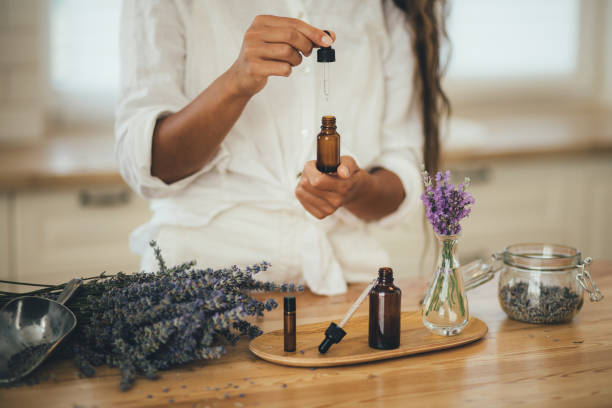The Untapped Potential of Aromatherapy: An Age-Old Practice in Modern Health and Wellness
Have you ever been transported back to a childhood memory by a simple smell? This powerful, often overlooked sense can significantly impact our mood and general well-being. This article will delve into the science and history of aromatherapy, an age-old practice that uses the power of scent to promote health and wellness.

The Origins and Evolution of Aromatherapy
Aromatherapy, also known as essential oil therapy, has a rich history tracing back to ancient civilizations. The Egyptians, Greeks, Romans, and Chinese were known to use aromatic plant components for religious rituals, beauty care, food preparation, and health-care practices. As early as 5000 years ago, the Egyptians used aromatic oils for spiritual relaxation and physical well-being.
Over the centuries, the use of aromatherapy has evolved. Its resurgence in modern times can be attributed to French chemist René-Maurice Gattefossé, who discovered the healing properties of lavender oil on burns. Today, aromatherapy is viewed as a holistic therapy that complements traditional medicine, leveraging the power of scent to balance the body, mind, and spirit.
The Science behind Aromatherapy: More than Just Pleasant Scents
Contrary to what some may believe, aromatherapy is more than just inhaling pleasant scents. Essential oils—the aromatic compounds extracted from plants—are complex chemical mixtures that interact with our bodies in several ways. When inhaled, the scent molecules travel from the olfactory nerves directly to the brain and impact the amygdala, the emotional center of the brain. Essential oils can also be absorbed by the skin, where they can have local and systemic effects.
Recent scientific studies have shown the potential of essential oils in supporting health and wellness. For instance, lavender oil has been found to have a calming effect, which can help with sleep and anxiety. Peppermint oil has been shown to help relieve headaches and nausea.
Balancing the Benefits and Challenges of Aromatherapy
With its natural origins and holistic approach, aromatherapy offers a host of benefits. However, like any health practice, it’s not without its challenges.
The benefits of aromatherapy include its ability to help alleviate stress, improve sleep, boost mood, relieve pain, and improve cognitive function. However, it’s essential to understand that aromatherapy is not a cure-all but should be used as part of a comprehensive wellness strategy.
One of the challenges of aromatherapy is the quality of essential oils. With the market flooded with products, not all essential oils are created equal. It’s crucial to choose high-quality, pure essential oils to ensure safety and effectiveness.
Another challenge is potential allergic reactions or sensitivities to certain oils. Therefore, it’s important to do a skin patch test before using a new oil and to use oils responsibly, following all safety guidelines.
Fascinating Aromatherapy Facts and Practical Tips
- A single drop of essential oil can contain more than 300 chemical compounds.
- Citrus oils like lemon, orange, and grapefruit can help invigorate and uplift your mood.
- Essential oils should never be ingested unless under the supervision of a trained health professional.
- Always dilute essential oils with a carrier oil before applying to the skin to prevent irritation.
- Pregnant or nursing women, children, and individuals with specific health conditions should consult a healthcare professional before using essential oils.
In conclusion, aromatherapy is a fascinating and beneficial aspect of holistic health and wellness. It taps into our powerful sense of smell to impact our physical and emotional health positively. While it’s not a silver bullet for health, when used appropriately and responsibly, it can be an effective tool in our wellness toolbox. As always, it’s crucial to consult with healthcare professionals and do thorough research to make informed decisions about your health.






